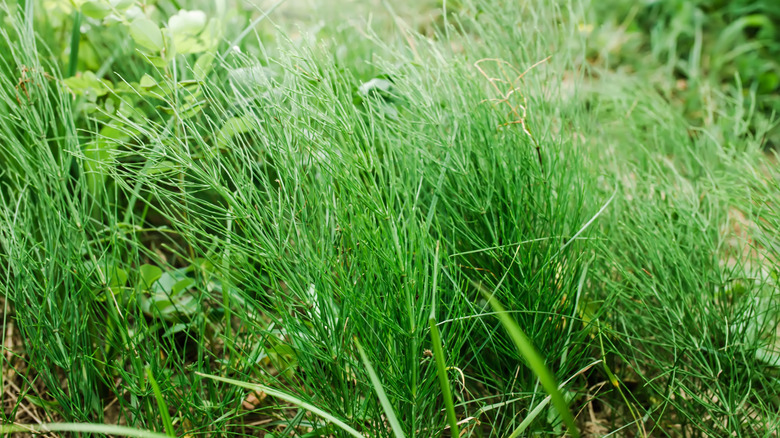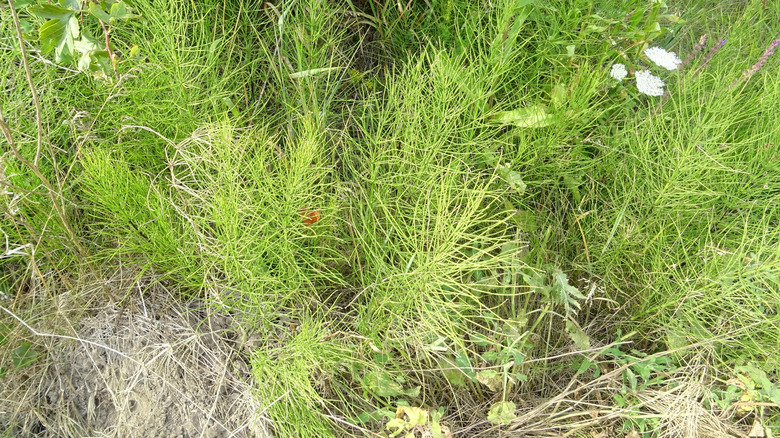Are Salt And Vinegar Enough To Banish Horsetail Weeds From Your Lawn?
Horsetail (Equisetum arvense) is notorious for being one of the most stubborn and resilient weeds to manage. With a deep root system and rhizomes that can spread over 4 feet down, horsetail is often a persistent problem in lawns and gardens. When looking for ways to keep horsetail weeds out of the lawn, homeowners turn to natural remedies, like salt and vinegar, but is this combination actually enough for long-term control? Vinegar, with its acetic acid content, can cause desiccation (drying out) of the weed's foliage. Salt will pull moisture out of the plant's cells, causing the leaves to wither and turn brown. When you combine the two, the solution can get rid of all the visible parts of the horsetail, making it look like it's gone.
However, the reality is that salt and vinegar solutions affect only the surface-level foliage of horsetail and other weeds. While they may cause the green shoots to wither, they do not penetrate or affect the plant's extensive root system or rhizomes underground. Horsetail roots can regenerate and send up new shoots even after the above-ground part of the plant has been destroyed. This means that while you may temporarily reduce the visibility of horsetail in your lawn, the plant will likely grow back in a few weeks or sometimes even less!
Why you shouldn't use salt and vinegar, and other solutions
Something else to keep in mind is that repeated use of salt and vinegar on your lawn and gardens can have unintended negative consequences. These substances can build up in the soil, making it inhospitable for other plants, fungi, and bacteria that benefit the environment, leading to soil degradation. This makes it an unsustainable long-term solution for controlling horsetail in lawns or gardens. While there are ways you can repurpose horsetail, ideally you want to find ways to stop them from coming back.
For more permanent control of horsetail, you need to explore other strategies. Digging it out is nearly impossible since even a single tuber left behind can regrow an entire plant. One option is to apply a systemic herbicide specifically designed to penetrate the weed's deep root system. Glyphosate (an active ingredient in Roundup) is a solid choice because it's a strong, non-selective herbicide, though it will kill any plant it touches, so apply it carefully. For more selective control, MCPA or triclopyr works well on horsetail with less risk of harming surrounding grasses. However, horsetail is resilient, so multiple applications will be required regardless of which herbicide you choose.
For a more natural approach, you can also improve the conditions of your soil to reduce the horsetail's ability to thrive. Horsetail prefers poor, compacted, or waterlogged soil. By improving drainage, aerating the soil, and adding organic matter, you can create an environment that is less conducive to horsetail growth.

